Audio available in app
Phantom limb sensations are a result of the brain's attempts to make sense of sensory input from "summary" of Phantoms in the Brain by V. S. Ramachandran
Phantom limb sensations are a fascinating phenomenon that occurs in amputees, where they continue to feel the presence of their missing limb. This can range from feelings of itching, pain, or even the sensation of the limb being in a certain position. But how can this be possible when the limb is no longer there? The answer lies in the brain's remarkable ability to adapt and reorganize itself. When a limb is amputated, the brain's representation of that limb in the somatosensory cortex does not simply disappear. Instead, neighboring areas of the brain begin to take over the function of the missing limb. This reorganization can lead to cross-wiring between different areas of the brain, causing sensory signals from one part of the body to be interpreted as coming from the missing limb. In essence, the brain is trying to make sense of the conflicting sensory input it is receiving. It is attempting to reconcile the signals it is getting from the nerves in the residual limb with the memory it has of the missing limb. This confusion can result in the perception of sensations in the phantom limb that mirror those of the intact limb. Furthermore, the brain's reliance on stored memories and expectations can also play a role in phantom limb sensations. For example, if a person remembers the sensation of their missing limb being in a certain position, the brain may recreate that sensation based on the memory, even though the limb is no longer there to provide the input.- Phantom limb sensations are a complex interplay between the brain's ability to adapt and reorganize, its attempt to make sense of conflicting sensory input, and its reliance on stored memories and expectations. By understanding these mechanisms, we can gain insight into the mysterious world of the brain and its remarkable plasticity.


